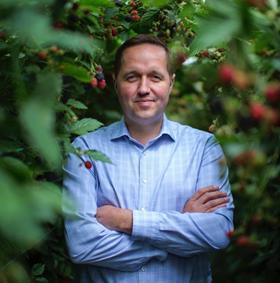Fruit and veg producers ignore the various climate challenges associated with water at their peril, says Richard Bonn, co-founder of Aethr Associates

Amid a deluge of alarming weather news, it’s hard to ignore the extremes: record-breaking rainfall in northern Europe, and unprecedented drought in the south.
We may be mistaken for thinking an El Niño cycle, which affects crop production globally, is the cause of these extremes. Fingers crossed that explains it in the short term.
But the climate forecast models indicate that its occurrence will become more regular as global temperatures rise.
Moderate global temperature forecasts predict that, at current rates of warming, we should expect around a 1.5°C increase by 2050. That’s on top of a 1°C increase since the 1980s.
Why does this matter? Some might say one degree is nothing. Well, according to thermodynamic science, the Clausius-Clapeyron equation predicts that for every 1°C increase, we will experience a 7 per cent increase in the atmosphere’s water vapour capacity.
Not only does this lead to heavier rainfall, it also disrupts the planet’s weather patterns, creates more energy in the atmosphere, and makes the whole system more volatile.
To compound this, water vapour is also a greenhouse gas. So, it creates a positive feedback loop which actually then amplifies global temperatures.
For all farm-based, weather-watching, primary producers, this should be a call to action.
Double materiality
It is now widely recognised that the biggest challenge agribusiness will face in future is to reduce its impact on the planet, while at the same time protecting themselves from the planet’s impact on their business models.
This concept is now known as double materiality. An age of adaptation is now upon us. But how should we respond?
Prioritisation is key. A key first step is to recognise the scale of specific risks to your business. And prioritising the subsequent response is critical to building resilience.
Water is critical to all farm systems. So, whether you are grappling with excess water, too little water, or poor quality water, the negative repercussions in terms of yield and cost are substantial.

In Southern Europe, water costs are soaring, while in northern Europe it has become more difficult for farmers to get on the land to plant.
In the short term, we must deal with what’s in front of us. But hopefully it acts as a wake up call to businesses that they need to start taking their future resilience seriously, and evaluate how climate change will affect their businesses sustainability.
To download a copy of The Aethr Sustainability Trends in Food and Agribusiness Report 2024, please visit www.aethr.co.uk.



